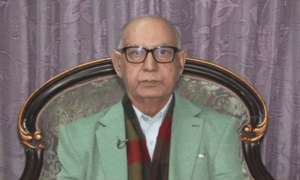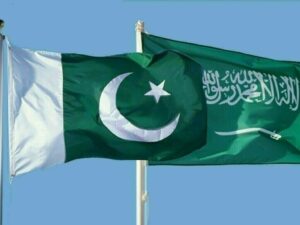Transparency in national affairs is a prerequisite for the rule of law, prosperity, and inclusive development. As both a driver and an indicator of holistic growth, transparency fosters a responsive political culture, a pragmatic economic landscape, robust institutional and judicial frameworks, and efficient service delivery. Nations with transparent socio-economic and political systems enjoy significant international stature. For instance, Finland, Sweden, Denmark, New Zealand, and Singapore consistently rank high on Transparency International’s Corruption Perceptions Index (CPI) and the Human Development Index (HDI), underscoring the strong correlation between transparency and prosperity.
However, those plagued by corruption lag far behind in all aspects of life, with Pakistan being no exception. Among the myriad issues afflicting the country, corruption plays a pivotal role in perpetuating stagnation, if not outright regression. The genesis and gravity of this issue in the state is rooted in the vested interests, unconstrained authority of entrenched power structures, and the near-absolute impunity enjoyed by the deep state, dynastic political elites, and bureaucracy. This unchecked freedom to engage in corrupt practices has become so deeply ingrained in the hearts and minds of people across all socio-economic strata that they have come to view it as a necessary evil and an adaptive strategy for survival and success.
This is manifested in its relatively consistent or even distressing standards on global rankings measuring transparency, rule of law, justice, and human development. With an ironic improvement of seven spots – from 140 out of 180 countries in 2022 to 133 in 2023 – in Transparency International Ranking, the country falls amongst the most corrupt socio-political settings in the world. Countries with low CPI scores, including Pakistan, typically rank poorly in the Rule of Law Index, Democratic Index, and HDI. World Justice Project’s Rule of Law Index 2024 places Pakistan at 140 of 142 countries making it the third worst country in terms of law, order, and security. Only Mali and Nigeria fare worse.
Pakistan also experienced the most severe democratic decline in Asia, plummeting 11 places in the Economist Intelligence Unit’s Democracy Index 2024. Its score fell to 3.25 – a downgrade from a ‘hybrid regime’ to an ‘authoritarian regime’. Similarly, with a rank of 164 out of 193 countries on the UNDP’s HDI for 2023-24, Pakistan falls into the ‘low’ human development and human rights. The abysmal global standards and significant downgrade in vital rankings suggest that the CPI’s improvement may have paradoxical consequences, indicating a pervasive culture of corruption.
The poor global metrics suggest that corruption extends far beyond the mere theft of money: it exacts a profound toll on all levels – political, social, moral and intellectual. Reluctantly, the legal enforcement framework has weakened, and the economy has faltered, exacerbating pressing issues such as unemployment, poverty, illiteracy, overpopulation, healthcare and sanitation crises, environmental degradation, food and energy shortages, brain drain, human rights abuses, gender discrimination, and criminalisation of dissent. These issues collectively erode the social fabric, creating a vicious cycle that amplifies the root problem: corruption. As both causes and consequences of corruption, these issues perpetuate its roots, leading most to view it as a necessary evil for survival.
Nevertheless, the corruption remains addressable, requiring a multifaceted approach centred on the integrity and stability of the political culture, institutional overhaul, raising political consciousness and educating the people, an across-the-board accountability mechanism, responsible freedom of expression, and civic engagement. Liberating the judiciary and subjecting the institutions and people manning them to the law would act as an effective antidote to corruption.
However, meaningful progress demands dismantling the entrenched power structures and vested interests that perpetuate corruption in all its manifestations. Only then can Pakistan break free from this vicious cycle and pave the way for sustainable development and prosperity.
- Desk Reporthttps://foresightmags.com/author/admin/











